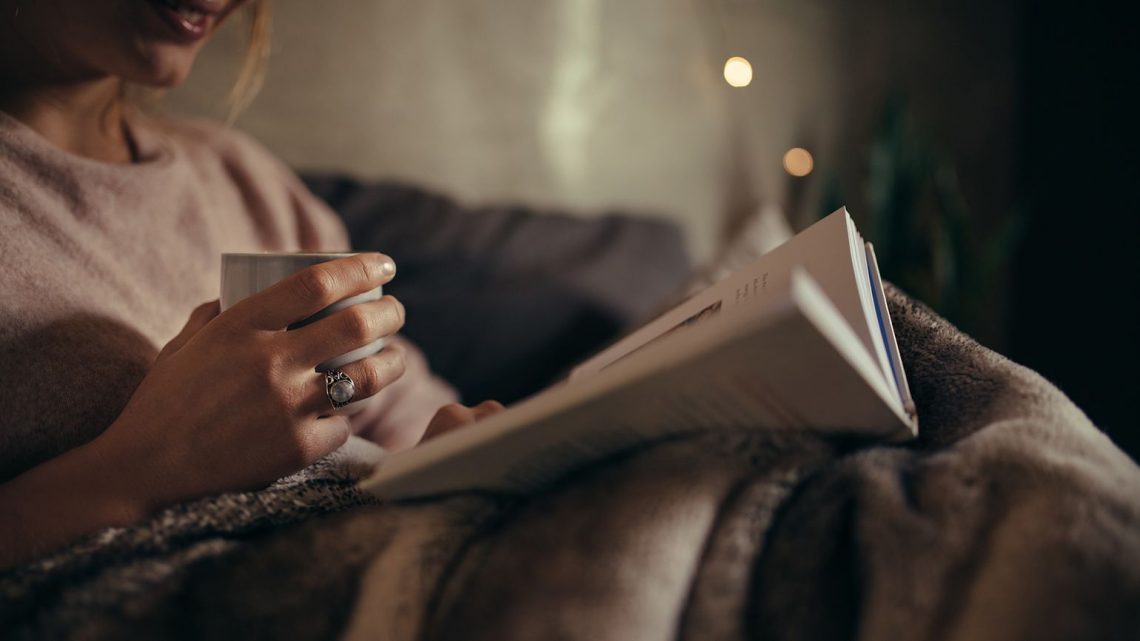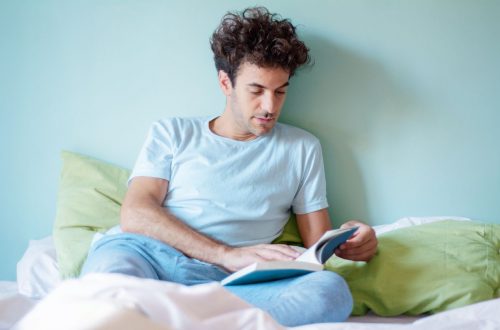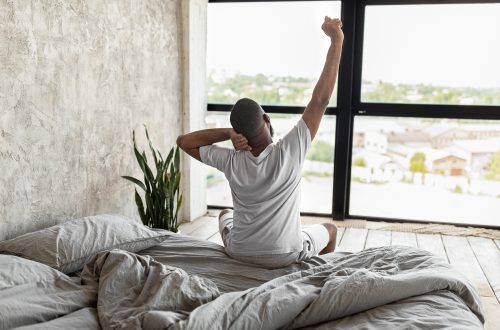I used to think I was the kind of person who could live plugged in forever. Phone in one hand, laptop on my knees, television murmuring in the background like white noise I barely registered. My evenings were a blur of scrolling, clicking, and skimming through endless streams of content, like a hungry person wandering through a buffet and never quite finding a plate worth sitting down with. I convinced myself this was relaxing. After all, what else do people do after a long day?
But something in me began to itch. Not in the literal sense, but in that subtle way the body tries to whisper when it’s not happy. My sleep grew lighter, more fractured, like a pane of glass that cracked in too many places to hold weight. I’d wake up tired even after eight hours in bed. My attention felt splintered, like trying to hold water in my hands only to watch it slip through my fingers. And the strangest thing was, the more I tried to “relax” with screens, the more restless I became.
The turning point came one evening when the Wi-Fi went down. At first, I panicked, as though someone had cut the power line to my nervous system. I paced, phone in hand, checking bars of signal like a desperate prospector hoping to strike gold. But after ten minutes of frustration, I surrendered. I turned off the TV, tossed my phone onto the couch, and just sat there in the quiet. The silence pressed in on me like an unfamiliar fabric, scratchy at first but slowly warming. I noticed how the light from the setting sun painted the walls in honeyed tones, how the air outside carried a faint dampness from earlier rain. It wasn’t dramatic, but something shifted. I felt present in my own skin in a way I hadn’t in years.
That night I fell asleep earlier than usual, without the jittery mental static that usually kept me tossing. The next morning I woke with a clarity I couldn’t ignore. It was like finding out your favorite food had been giving you indigestion all along — once you see it, you can’t unsee it. So I decided, somewhat experimentally, to banish screens from my evenings. What followed wasn’t just an adjustment of habit, but a reshaping of how I understood rest, time, and even myself.
At first, it was awkward. Evenings stretched out like unfamiliar hallways. I’d sit on my couch with nothing to swipe or scroll, my hands twitching with phantom gestures. I didn’t know what to do with myself. Reading seemed too much like effort, and cleaning felt like work, not relaxation. For a while I just sat there, feeling vaguely ridiculous, like a guest who arrived too early to a party. But slowly, these blank spaces began to fill.
I found myself reaching for the stack of books I’d promised to read “someday,” their spines lined up like polite soldiers waiting for their orders. I started making tea the slow way, boiling water in a kettle and listening to the hiss and pop of bubbles instead of zapping a mug in the microwave. I discovered how long it actually takes for the steam to curl in the air, how the scent of chamomile hangs around like an invisible shawl. Small details, yes, but they gave shape to time in a way screens never did.
One evening I lit a candle and just sat with it flickering beside me, no purpose beyond watching wax melt into a pool of liquid light. It felt both ancient and oddly rebellious, as though in ignoring my phone I was resisting some invisible current pulling everyone else along. And in that rebellion, I found a softness. My evenings became gentler, not because life itself changed, but because I stopped demanding so much noise from it.
What surprised me most wasn’t how much I got done in those screen-free evenings, but how my relationship with boredom shifted. Boredom, once an enemy I fought off with notifications and autoplay, began to feel like fertile ground. Out of it grew new curiosities. I picked up a journal I hadn’t touched in years and scribbled down fragments of thought. Some were trivial — grocery lists, half-formed ideas, little sketches of the day. But occasionally, something deeper surfaced. A memory I’d forgotten, a feeling I hadn’t named. It was as though by removing the constant chatter of screens, I made room for my own voice to echo back.
Sleep transformed too. Without the blue glow buzzing against my eyelids, I started drifting off earlier, sometimes startling myself by how quickly the night wrapped around me. I’d wake up not only rested but somehow steadier, as though the threads holding me together had been tightened overnight. My mornings, once rushed and foggy, began to stretch wider. I found myself walking to the kitchen without that zombie-like need for caffeine, pausing to notice the way light filtered through the blinds, stripes across the floor like tiger shadows.
I didn’t realize how deeply screens had invaded my sense of rhythm until I stepped away. Without them, time revealed itself in subtler textures: the slow bloom of dusk, the way shadows shift as a lamp hums on, the silence that isn’t silence at all but layered with crickets, passing cars, pipes groaning in the walls. I began to trust these natural markers instead of the artificial ping of notifications. And in that trust, I felt less rushed, less pulled in a dozen invisible directions.
Friends laughed when I told them about my no-screens evenings. Some called it old-fashioned, others insisted they could never do it. But the truth is, I’m not living in a cabin in the woods. I still have my phone, my laptop, my TV. I just chose to draw a boundary around my evenings, a little fence to keep the chaos out. And inside that fence, life feels slower, fuller, somehow more mine.
It hasn’t been perfect. There are nights when temptation wins, when I find myself slipping back into the glow of a series or the endless scroll of social feeds. But those nights serve as reminders, not failures. I notice the difference immediately — how my body buzzes slightly later, how my dreams turn scattered. It only deepens my commitment to reclaiming the quiet.
Over time, my evenings without screens became not just a habit but a ritual. The kind of ritual that anchors you, like brushing your teeth or locking the door before bed. A cup of tea, a page or two of a book, maybe a short walk under the night sky if the weather allows. I’ve come to crave these small acts the way I once craved the quick dopamine hits of endless content. The difference is, these acts nourish rather than drain.
The most unexpected gift, though, has been creativity. Without screens feeding me a constant drip of distraction, my mind began to wander in new directions. I’d find myself imagining projects, planning small adventures, sketching out ideas that had long been buried under noise. It was as if my brain, no longer crammed with headlines and memes, finally stretched its limbs and remembered how to dream.
In the quiet of those evenings, I’ve re-learned the art of noticing. The sound of rain against the window doesn’t feel like background anymore; it feels like music with a rhythm worth listening to. The texture of a blanket on my knees is no longer invisible, but grounding. Even washing dishes after dinner has taken on a meditative quality, the warm water and slow circles of the sponge a way to rinse not just plates but thoughts.
This shift hasn’t just changed my nights; it’s changed my days. I feel less frantic, more patient. When I sit down to work, my focus sharpens more easily, like a knife that’s been honed on the quiet of the night before. Conversations feel richer, because I’m not half-distracted by a buzzing pocket. Even simple moments, like waiting for water to boil or standing in line at the grocery store, feel less like gaps to fill and more like space to breathe.
I don’t pretend this lifestyle is for everyone, nor do I think I’ve discovered some secret that others don’t know. But what I’ve learned is that rest is not the absence of activity; it’s the presence of something softer, slower, and more intentional. My evenings without screens taught me that. They showed me how time, when unhurried, reveals details we’ve trained ourselves to ignore. They gave me back my attention, piece by piece, like gathering scattered beads into a necklace.
And perhaps most importantly, they reminded me that life doesn’t have to be maximized, optimized, or constantly filled. Sometimes it just needs to be lived — quietly, imperfectly, with the glow of a candle and the hum of silence for company.
So now, when the sun dips low and shadows climb the walls, I don’t reach for a remote or a charger. I let the evening arrive as it is, carrying whatever it brings. Some nights it’s laughter over tea, other nights it’s simple stillness. But always, it feels like mine.
And that, I think, has changed everything.




